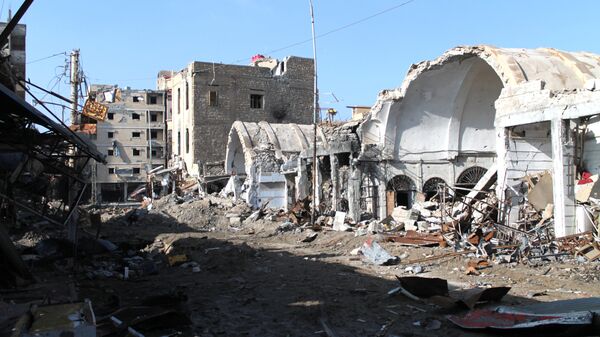The Deir ez-Zor attack has made "the latest tenuous effort at a ceasefire/humanitarian access arrangement much more difficult to implement," Executive Director at the Center for the National Interest Paul J. Saunders asserted. In addition, it has "further [poisoned] an already profoundly mistrustful relationship between the United States and Russia, two essential participants in any settlement."
Russian envoy to the UN Vitaly Churkin said that the timing of the air raid was "highly suspicious," adding that "some aspects of the situation suggest that it could have well been a provocation." The United States brushed these concerns away, saying only that the attack was unintentional.
Saunders called Washington's approach "both narcissistic and impractical."
"Failing to address Russia's concerns in one way or another is deeply impractical for anyone looking to stop the fighting in Syria," the analyst said, adding that one of the most important steps in resolving the Syrian crisis involves focusing "on everyone's common foe, the barbaric [Daesh] forces who took advantage of Syria's instability to establish themselves as a de facto regional government."
The Deir ez-Zor attack has also adversely affected relations between Washington and Damascus.
This is something that Washington does not seem to be ready to admit.
On September 12, John Kirby, a spokesperson for the US State Department, made it clear that the US was not ready to work with Assad now or in the future. "There's been no cooperation with Assad and there's not going to be cooperation with Assad," he said, adding that "we have been nothing but clear about Assad's illegitimacy."




